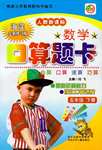Why People Get TattoosJack lay, quiet and unmoving, for thirty minutes while a stranger
repeatedly stabbed (刺) him with sharp needles, causing blood to pour
steadily out of his leg. Jack was getting a tattoo. His friend Tony had
recently gotten a tattoo, and Jack was so impressed by it that he
decided to get one too. Peer pressure, media
influence, and personal expression are some of the common reasons for
wearing tattoos today.
The desire to be accepted by one’s friends or peers can have a great influence on what a person does. Sometimes, wearing a tattoo can be a sign that you belong to a certain group. Gangs often use special clothes and tattoos to identify their particular group. Some of these groups wear only brand – name clothes. Others wear tattoos. When a person’s friends are all doing something, that person in more likely to do the same thing.
The media is another big influence behind the popularity of tattoos in North America. A wide variety of media images(人物,图像) show tattoos-people appearing in commercials selling expensive cars, famous sports heroes with tattoos in magazines, fashion models wearing designer clothes that show their bodies tattooed with detailed and colourful patterns. These media images link tattoos to ideas of wealth, success, and status. As a result, many people decide to get a tattoo for its fashion and status value.
Many people decide to wear tattoos in order to express their artistic nature, their beliefs, or their feelings-in other words, to show their individuality(个性). A musician in a rock band may get a tattoo of a guitar on the arm. Some environmentalists may tattoo pictures of endangered animals on their shoulders. A tattoo can be a public sign to show what is important in a person's life.
As you can see, there are many reasons why young North Americans get tattoos. A tattoo can be part of a group's uniform, a sign of fashion. or an expression of individuality. The decision to get a tattoo is most often a result of the influence of friends or media or the desire to express oneself. For Jack, it was a mixture of all three.
63.Jack has got tattoos in order to
.
A.show his great bravery B.gain a special experience
C.make himself more healthy D.be different from others
64.According to the passage, media images are linked to
.
A.traditional lifestyle B.social position
C.cultural background D.public interest
65.We can infer from the passage that
.
A.some people get tattoos out of pressure
B.tattoo is related to religious belief
C.getting tattoos costs a lot of money
D.most people with tattoos are artists
66.Which of the following shows the structure of the passage?
CP: Central Point P: Point Sp: Sub – point (次要点) C: Conclusion



 口算题卡河北少年儿童出版社系列答案
口算题卡河北少年儿童出版社系列答案 A加金题 系列答案
A加金题 系列答案 全优测试卷系列答案
全优测试卷系列答案